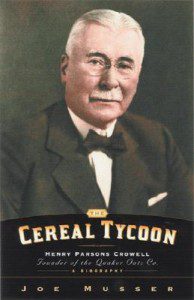 1. Geoff Colvin’s Talent Is Overrated: What Really Separates World-Class Performers from Everyone Else. Colvin is the senior editor of Fortune magazine and should have some interesting things to say. Here’s the book’s website blurb: “Why are some people so extraordinarily creative and innovative? Why can some continue to perform great at ages when conventional wisdom would deem it impossible?
1. Geoff Colvin’s Talent Is Overrated: What Really Separates World-Class Performers from Everyone Else. Colvin is the senior editor of Fortune magazine and should have some interesting things to say. Here’s the book’s website blurb: “Why are some people so extraordinarily creative and innovative? Why can some continue to perform great at ages when conventional wisdom would deem it impossible?
Those are the questions Geoff Colvin set out to answer in Talent is Overrated: What Really Separates World-Class Performers From Everybody Else. What he found is that almost all of us think we know the answer to those questions: The lucky few superperformers were born with a special gift, an innate ability to do exactly what they do so extremely well. But he found that we’re mostly wrong. A growing body of scientific research shows that it isn’t so – that specific natural abilities don’t explain great performance.
Instead, the key is what researchers call deliberate practice – but beware, because it isn’t what most of us do when we think we’re practicing. It’s a well-defined set of activities that world-class performers pursue diligently. More of it equals better performance. Tons of it equals great performance.”
 2. Malcolm Gladwell’s Outliers: The Story of Success. Gladwell is a writer for the New Yorker and a controversial but innovative thinker and writer, one of those guys who everyone in Manhattan and other cultural capitals is reading.
2. Malcolm Gladwell’s Outliers: The Story of Success. Gladwell is a writer for the New Yorker and a controversial but innovative thinker and writer, one of those guys who everyone in Manhattan and other cultural capitals is reading.
Gladwell on why he wrote the book: “I write books when I find myself returning again and again, in my mind, to the same themes. I wrote Tipping Point because I was fascinated by the sudden drop in crime in New York City—and that fascination grew to an interest in the whole idea of epidemics and epidemic processes. I wrote Blink because I began to get obsessed, in the same way, with the way that all of us seem to make up our minds about other people in an instant—without really doing any real thinking. In the case of Outliers, the book grew out a frustration I found myself having with the way we explain the careers of really successful people. You know how you hear someone say of Bill Gates or some rock star or some other outlier—”they’re really smart,” or “they’re really ambitious?’ Well, I know lots of people who are really smart and really ambitious, and they aren’t worth 60 billion dollars. It struck me that our understanding of success was really crude—and there was an opportunity to dig down and come up with a better set of explanations.”
Each of these texts will, I hope, inspire me not to work for wealth, but to work for the maximization of the abilities the Lord has given me to the glory of His name. That’s what I hope to do with secular texts like these–not to let them shape me, but to take them and use their insights for advancement of the kingdom. Perhaps we don’t need to turn our back on the business world as Christians–perhaps we need to master it, and not allow it to master us.











